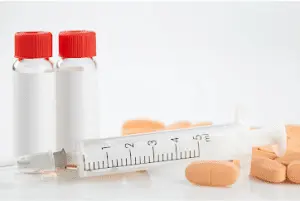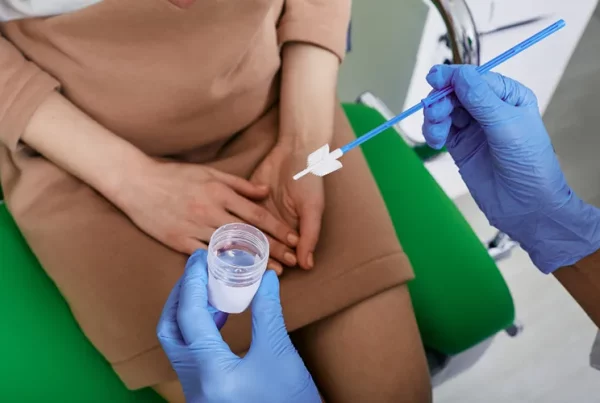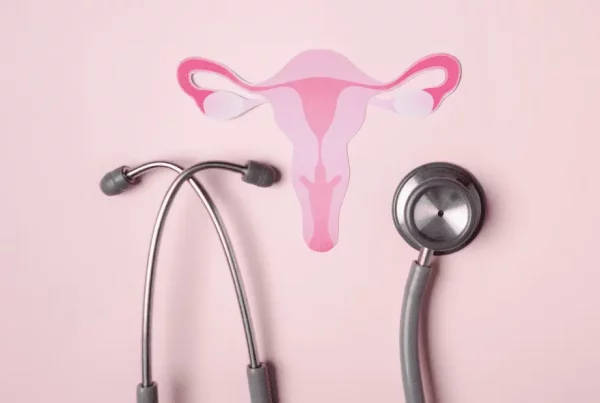According to a study done by the Singapore National University Hospital, it is estimated that at least 5% of ladies aged 15-65, suffer from urinary tract infections (UTIs) at least once in their life. This rather uncomfortable condition can recur for some ladies. In fact, the study discovered that 25% of ladies tend to experience at least one recurrence of a UTI within the first six months of getting their first infection.
Despite how common this condition is especially amongst ladies, many do not come forward to seek proper medical treatment until the condition deteriorates.
In this article, our gynaecologist, Dr Kanika Chaudhuri, answers all your burning questions about UTIs. She also touches on what you can do to prevent UTIs.
What are UTIs?
UTIs are infections that occur in the urinary tract. It can affect your kidneys, ureters, bladder and urethra, all of which are part of the urinary tract.
Infections in the lower urinary tract like the bladder and ureter can be uncomfortable but they are not as severe and life threatening as infections in the upper urinary tract such as the kidneys.
How Do I Know If I Have a UTI?
- Burning with urination
- Increased frequency of urination
- Increased urgency
- Bloody or cloudy urine
- Feeling of incomplete urination
- Urine with a strong odour
- Abdominal pain
- Nausea
- Tiredness
- Low grade fever
If you experience any of the following symptoms, you should consult a doctor early to receive personalized help. With early treatment, the recovery process can be as short as a couple of days and it will also prevent the UTI from becoming a chronic problem.
Are Women More Vulnerable to UTIs Than Men?

Human Reproductive System
Women are indeed at a greater risk of getting UTIs as they have a shorter urethra as compared to men. This results in women being more vulnerable to urine infection. While the prevalence of women having UTIs is higher, males can also be a victim. Therefore, all individuals should consult a doctor for professional advice if one observes any symptoms of UTIs, experiences any discomfort or observes any changes in their urine to receive treatment and prevent the UTI from deteriorating.
Are Menopausal Women More Prone to UTIs Than Women at a Different Life Stage?
Ladies going through menopause face a lot of physiological changes such as the drying and atrophy of pelvic organs, specifically those around the vulva. Unfortunately, these changes make menopausal ladies more prone to UTIs.
It is important to note that due to the physiological changes ladies face during menopause, they might require additional medications if they get UTIs. An example of the additional medication is local estrogen creams.
If you are going through menopause and suspect you might have a UTI, Dr Kanika recommends visiting a doctor as they will be able to diagnose the UTI and offer personalised treatment options as well as advise you on how you can manage and prevent UTIs.
How are UTIs Treated?
After you suspect you have a UTI, the next step is to book an appointment with a doctor to get an accurate diagnosis as there are two types of UTIs, acute and chronic.
An acute UTI is a one-off infection and your doctor would be able to diagnose your condition by performing a urine test.
Chronic UTIs on the other hand are repeated infections of about three to four times in a year. A urine test would first be carried out and your doctor may request to perform further tests such as X-rays and cystoscopy to provide you with a complete diagnosis.
After diagnosing your condition, your doctor would then design a treatment plan that is most suitable for you.
How are Acute UTIs Treated?

Escherichia coli (E. coli)
For acute UTIs, treatment is dependent on the type of organism which has caused the infection. UTIs can be caused by bacteria, viruses or fungus. The most common cause is typically bacteria, known as Escherichia coli (E. coli). In fact it is so common that an E. coli infection was previously synonymous with UTIs!
How Does a Doctor Determine the Cause of an Acute UTI?
Your doctor can determine the cause of your infection by doing a culture sensitivity test. If the test shows that the cause of the UTI is bacteria, the UTI will be treated with antibiotics. If the cause of the UTI is a virus or fungus, it needs to be treated with antifungal or antiviral medication.
How are Chronic UTIs Treated?

Oral and Intravenous Antibiotics
Chronic UTIs may require long term treatment. Similar to acute infections, the treatment for chronic UTIs depend on the cause of infection. These are the three main causes of chronic UTIs:
- Patient’s body developing resistance to the antibiotics,
- Kidney or bladder stones or
- If the patient has other comorbidities like diabetes
Depending on the cause of the infection, oral or intravenous antibiotics may be used to treat the chronic UTI.
What Happens If I Ignore the Symptoms of a UTI?
Ignoring the symptoms of UTI and not receiving treatment can be detrimental. It can potentially result in chronic infections, pyelonephritis and even kidney damage.
Therefore taking the severe ramifications that can result from ignoring UTI symptoms into consideration, you should take any symptoms observed more seriously. Seek help from a doctor early when you observe symptoms of UTIs, experience any discomfort or observe any changes in your urine.
What Can I Do To Prevent Acute or Chronic UTIs?
How Can I Prevent Acute UTIs?
- Drinking sufficient water (1.5-2 litres/day).
- Maintaining basic hygiene.
- Having a diet that is rich in probiotics, vitamins and minerals.
- Increasing fluid intake if you observe symptoms of a UTI.
- Avoiding holding on to a full bladder.
How Can I Prevent Chronic UTIs?

A Consultation Session with Dr Kanika
In the case of chronic UTIs where there may be multiple episodes of infections in a year, more investigations have to be carried out by a doctor such as X-rays and ultrasounds to find the root cause of infection. Taking prolonged courses of antibiotics is also another way to prevent chronic UTIs.
The general measures may seem slightly overwhelming but they are actually easy to implement into our daily lives. Furthermore, these measures not only help to prevent UTIs, they are also beneficial for our overall health and well-being. Dr Kanika advises all ladies (and even gents) to start reaping the health benefits by practicing these measures today!
Conclusion
UTIs are one of the most common infections and all ladies and even men are vulnerable to it. Dr Kanika reassures all ladies that you should not feel shy to speak to a doctor about your condition or any concerns you might have. Your doctor will be able to help answer all your concerns and recommend a treatment plan that is most suitable for you if you have a UTI. Last but not least, something as simple as practicing good hygiene and following the measures Dr Kanika shared can play a vital role in preventing you from becoming the next victim of UTIs.Dr Kanika’s Place of Practice
Astra Women’s Specialists Centre
Blk 185 Toa Payoh Central
#01-326
Singapore 310185
Tel: +65 6221 3837



